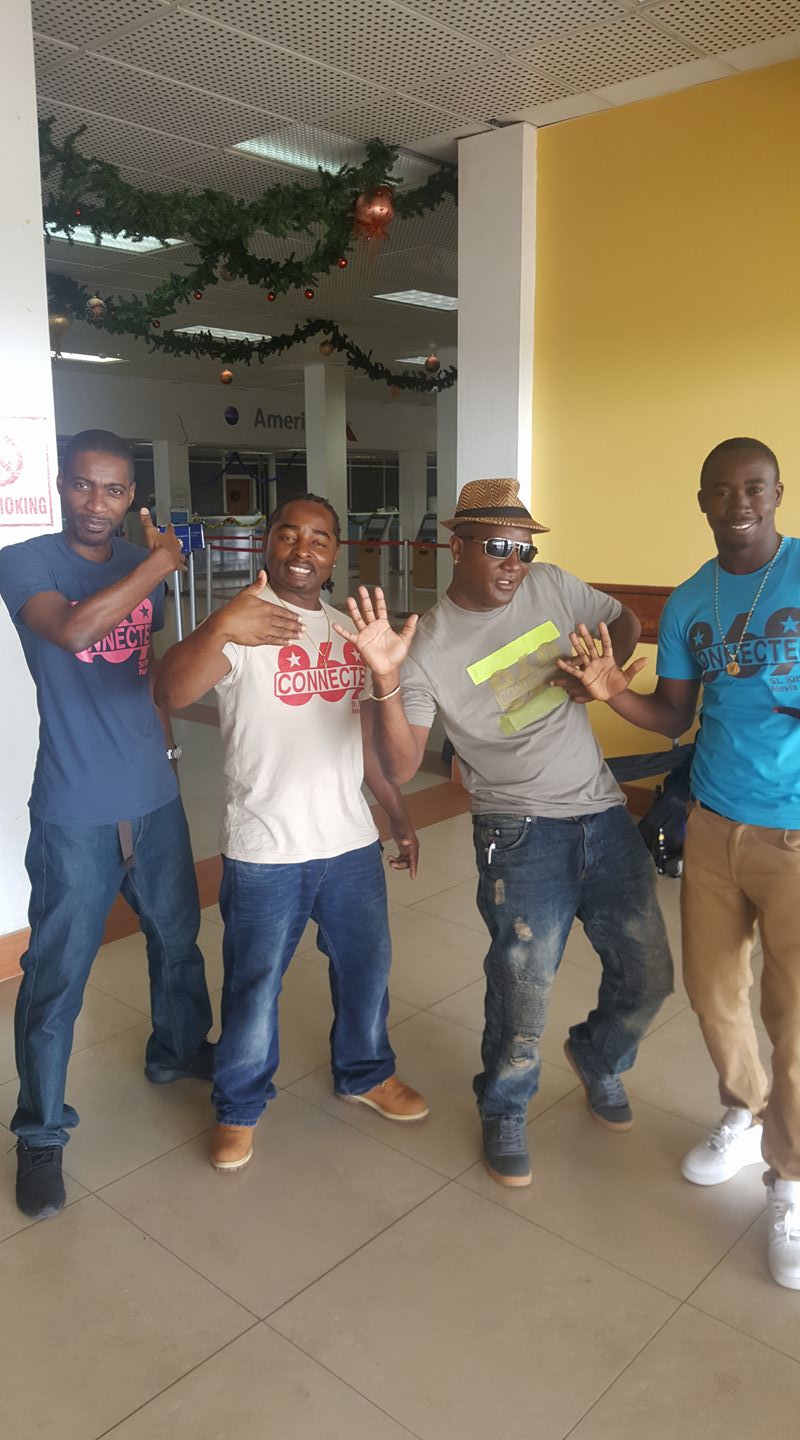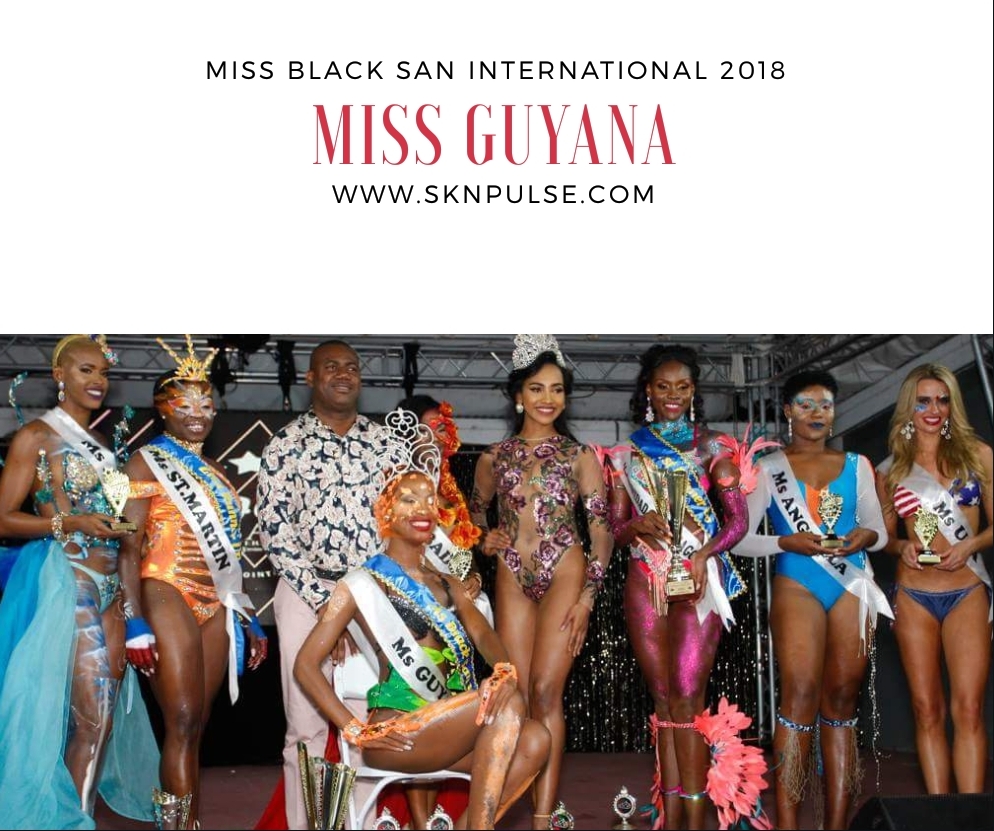By: Ervin Welsh
Basseterre, St. Kitts. December 01, 2023 — What follows is an extract from the final parts of a work by Ervin Welsh titled “Decoding Deviance: Symptoms Of Identity Crises”. Already published (on the website where the full work may be accessed) is, in addition to this extract, an extract from the opening. Reading the opening first would naturally be ideal, but we’re sharing here nevertheless the close of the entire thing.
We’ve moved forward in publishing these sections of what is altogether a more comprehensive work; choosing to do so noting the increasing frequency of incidents of violence here at home. This work was undertaken independent of intent to respond to the state of affairs (here or elsewhere) discussed within it; it’s instead an exploration of matters for their own sake — the sake of clarity, including seeing how things seemingly disparate (may) share the same parents.
The extracts we’re sharing — and bearing in mind the rest is also on the brink of being published — can be a conversation-starter for considering from a different level, the matters upon which it touches (matters like violence). What we’ve included here is effectively the reflection aspect of our exploration; and included in it are the following words which put into perspective some things about the overall undertaking:
“The public health approach to violence prevention has gotten a good handle on the behavior of violence with its transmission from person-to-person — someone affected by a previous incidence of violence, thereafter (prone to being found to be) targeting another — but {our (ultimate) question was} how does “infection” itself come about?”
[Read Decoding Deviance: Symptoms Of Identity Crises from the beginning]
Our Last Words (as found in this work):
Section 3.1
We (people generally) put to rest (for a time) some of our concerns, for instance, that of being attacked physically and/or verbally, and this we do, for instance, by learning to defend ourselves. We pursue this same sense of psychological security in other ways as well: getting a job, starting a business, starting a relationship, saving a considerable sum of money, making investments; we diversify our portfolio, we build organizations to address what (we perceive as) going wrong with the world; we start movements; we secure grants and donations; all this is an ever-expanding sphere of influence (an increase in personal strength; an increase in might even) but all this is founded on the shaky ground of competence and is meant to give us some sense of stability and security — some sense of well-being.
We build levers such as these which give us ever-greater power; but {our question is} are we mature?
We grow older without effort; but without effort, do we grow up?
We become seniors, but do we become elders in the more profound senses of the word?
{Observe} even the choice to learn to defend (what is referred to as) “oneself” over pursuing self-
knowledge — as comes from inquiring into identity (and/or comes from merely being intellectually honest with daily life as it presents itself) — this is {technically (and non-judgmentally speaking; actually quite understandably) but nevertheless} an immature decision.
{Practically speaking} we aren’t making any submissions in the way of value judgments; but {technically} {one observes} that all learning takes place over time; and {one observes that} the time allocated to something is allocated at the expense of the time that could have been given to something- else; and so prioritizing defense of a transient body-mind over the understanding that informs the most high levels of analysis as would inform putting the body (i.e. putting life itself) to its best use is {at a high level of analysis (without getting too specific) {and non-judgmentally we say this still}} not so intelligent, is it?
{Again, practically speaking} we aren’t making submissions; however {{observe} {the fact
that}} competence affords one the leisure to direct one’s attention to other matters which don’t evoke the fight or flight response; and this it does by shielding one from having the fight or flight response being engaged as concerns particular matters in which one finds oneself at a given time where one is competent to deal therewith. But the thing with competence is, we are liable to think it sufficient, and to use this leave (i.e. the leisure it gives) to focus on replicating pleasant experiences, and to pursuing other desires (born of imagination); the alternative course of action being, considering (what are often referred to as) “spiritual” matters (which we ourselves also refer to as philosophical questions), and to pursuing self- knowledge.
In any event, it is awareness of well-being that allows one to grow, be one’s decision to grow up in strictly body-mind preoccupied ways; or to mature into the correct sense of one’s identity. This leisure {as submitted before} mutually arises with awareness of well-being; and awareness of well-being {we (ourselves) observed} is informed by self-knowledge and/or competence with respect to technical knowledge — technical knowledge itself being informed by experience or by an accumulation of information — but self-knowledge and competence aren’t built the same; nor do they offer the same security and/or stability.
Whereas self-knowledge concerns identity; competence has being in the realm of existence only. Competence can be used as a means to an end, and/or — as is all too often the case — it can become an end in itself. In such cases, competence becomes identified with rendering one’s perception of oneself as “I am So-and-so”; and one becomes therefore prone to trying to confirm one’s (perceived) identity, by exercising competence — identifying as one does with one’s accumulations.
Section 3.2
The public health approach to violence prevention has gotten a good handle on the behavior of violence with its transmission from person-to-person — someone affected by a previous incidence of violence, thereafter (prone to being found to be) targeting another — but {our (ultimate) question was} how does “infection” itself come about?
There’s no doubt there has been enough violence in history to account for pockets of violence wherever they pop-up, and they pop-up somewhere all the time, not to mentioned those that are sustained over time. There is, as we spoke of, cause for violence (i.e. an understandable inclination toward acquaintance
with violence) when growing up in a place where violence is already an epidemic — and this considering one (often) has, to be acquainted with it so as to know how to avoid and to defend against it. Nevertheless, while we speak (here) about the probability of encountering violence; we’ve also spoken of non-violence, and of civil disobedience; and these we spoke of, accompanied with the notions of their greatest strength being when the justifiability of objections to frustrations is strongest. This “justifiability” is itself a germ — this justifiability being wrong-done such as becomes the cause for retaliation; and this “wrong-done” may not be violence, it may be words uttered that injure one’s perception of oneself or other’s perception of one; it may be oppressive or exploitative circumstances; it may be the deprivation of some means to an end (and this, even where one’s means is itself unacceptable, perhaps unlawful); it may be the probability (but not yet actuality) of such things — and it could grow and mutate (in one’s perception) into full blown cause for violence — it may (in a manner of speaking) already be full blown cause for violence — but it’s maturity that informs reaching for peaceful means. {Our (ultimate) question was} how does maturity do this?
The word confidence has at its origin, the sense, “have full trust” (Oxford Dictionaries). The word faith has a definition, “complete trust or confidence in someone or something” (Oxford Dictionaries). From a grain of faith to having it in abundance, awareness of well-being matures into humility — i.e. into being humble. But humility i.e. “intellectual honesty” is the seed whose germination (i.e. whose maturation) is a process referred to as earnestness (i.e. humility in motion) and this is the maturation factor.
With humility as the end, and the end concerning what one is being; humility being having full trust in God (i.e. in Life itself) which was; is; and is to come, in maturation; humility is trust in the completion and perfection of what is. Humility is therefore the beginning and the end: the seed is being intellectually honesty; the fruit is having full trust (i.e. being humble); and being this is itself self-knowledge.
We don’t depend on scripture for our perspectives but nicely put is the (afore-shared) sense that “… all things work together for good to them that love God, to them who are the called according to his purpose” (Romans 8:28, KJV). Having such a perception ourselves we ascribe no value to what happens. Nevertheless, to the extent one perceives oneself as having volition, self-knowledge is {{we submit} {philosophically speaking}} the only means to completion (i.e. to maturity); as completion involves being that which one is — which concerns identity.
Section 3.3
One may know the Self, and know life from that state, and may find one’s person in the midst of violence — words can’t capture truths that are indivisible; diving things is what words primarily do. But, as concerns (perception of) volition; and as concerns inquiry — bearing in mind that intellectual honesty operating in one who is competent, brings that one to self-knowledge: as one can, in inquiry observe (what are referred to as) one’s “choices”; seeing the difference between acting from identity versus being identified with something(s); and in being intellectually honest about it; and in earnestly living in the truth one has thus far come to, brings in due course, one to the totality thereof.
In knowing that which one is; and in being it; the (perhaps very little) competence one possesses may allow one — to the extent one can in a circumstance — do (at best) the needful; and this as concerns such a thing as violence (e.g. in self-defense). And this one may be satisfied with as self-knowledge — even in lieu of competence — allows one to hold on to the truth of what is, and to do the little one can, trusting it is enough regardless of the outcome, seeing as one would, what comes to pass as being what God would have come to pass.
It is in being identified with something that reactions come; it is to the person that reactions happen. {{In its own context} {and at its own level of analysis}} this is fine, as the body-mind is one; but what we described in the paragraph before this one concerns affirmation of one’s identity; whereas what we’ve touched on in this paragraph is one confirming what one has misperceived oneself as being.
Maturity is the best defense against everything from violence, and identity crises, to discontentment of any kind, and infection by social and cultural memes of all types. Maturity, after all, concerns coming to be what one is; but since one is already what one is and cannot become it; maturity {in actuality} concerns — as the definition of the word mature does — “having reached the most advanced stage in a process” (Oxford Dictionaries) — in our context this means reaching clarity in self-knowledge, i.e. attaining self- realization.
From the place of self-realization, cognizing as one does the fact that all notions of improvement and value ascriptions refer to the transient level of manifestation; and living from the actuality of this — which involves then love as the motivating force — not profit (of any sort) — the issues we observe can first of all be healed as they’re predominantly consequences of misuses of the mind; and they can secondarily can be discussed in the ways which we (i.e. society generally) primarily discuss them now, namely, by looking at their features (i.e. incidents, and the historical unfolding thereof); but can instead be used to trace our errors of judgment as pertains to tradeoffs etc. This is maturation through earnest inquiry of the philosophical sort; and is both the remedy to, and the means of prevention of, identity crises and symptoms thereof, such as violence.
Ervin Welsh
T: 1(869)767-5073
E: ervinwelsh@gmail.com









